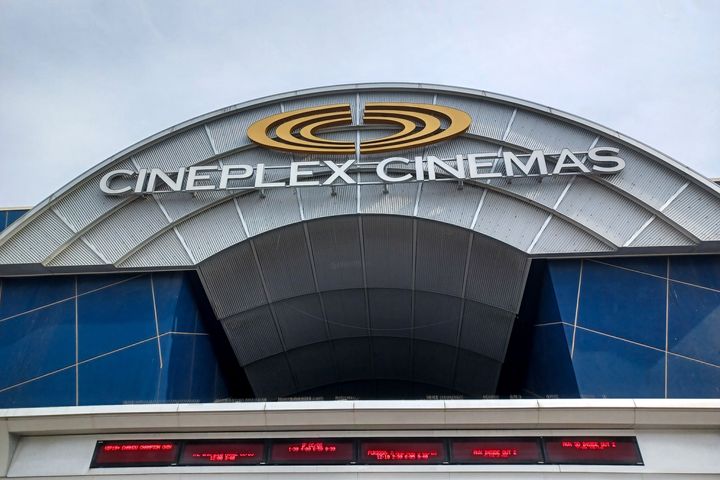
Circus School Forever! and other Hot Docs mash-ups
My brother bought the Hot Docs premium pass for the first time this year, meaning that he's been going to multiple films per day for about a week now. He told me yesterday that the strain is starting to hit him - that's a lot of film in a short period of time. Now, I pride myself on being able to digest a five-film day at TIFF without even breaking a sweat, but I have to admit that some of the culture and concept clashes that come from piggy-backing documentary after documentary are putting me into some strange head spaces.
Last week, for example, I went from a Japanese animated fable about growing up, to a movie where a guy died because he made a horse do him up the butt, to a character assassination of Michael Moore. By the end my mind was asking, "Michael Moore did what to what?! before I realized I was combining the plot points of multiple movies.
Last night I jackknifed from an usettling portrait of a Chinese acrobatics school to a contemplative and absorbing film about... well, the meaning of life, but by way of an exploration of a Parisian cemetery.
Circus School is a brutal and unflinching look at a Shanghai school where kids are trained to be acrobats. And by kids, I mean kids. The heartbreaker of the group is 10-year-old Xu Lu, who is essentially the throw-toy in a trapeze act. She falls a lot, gets badly hurt once, and is always made to keep going. It's extremely hard to watch.
Anyone who has ever seen Chinese acrobats (or gymnasts, or figure skaters) perform know that the nation is renowned for a level of technical craft and physical discipline almost unparalleled anywhere else in the world. In Circus School, we get an uncanny understanding of why.
The film is divided into two parts; in the first, we watch a team of trapeze artists prepare for a competition; in the second, a young boy is disciplined to perform a floor show in spite of his eating problems. What these children do onscreen seems quite literally superhuman, a point that is underscored when the trapeze team dons Spider-Man costumes and proceeds to perform a routine that will outshine anything Tobey Maguire trips on our ass next Friday.
The film is utterly without comment, or artifice of any kind really; its camera merely records the practice sessions and competitions of the students of the school without any real authorial intervention. This puts the "document" back in documentary; the audience is invited simply to watch the events (albeit events picked and chosen by the film team), and draw their own moral conclusions.
A North American audience will inevitably freak out when watching the scenes of what we could consider child abuse being visited upon these youngsters in several upsetting sequences in the film when they are pushed beyond their physical breaking point. Is there a culture clash here? I'm not really in a position to judge; I don't think we necessarily treat our kids any less abusively (Girls Rock had something to say about that) although we come at it in a different way.
Circus School is very static and in many ways uncinematic, and suffers by some pretty spectacularly bad subtitling in parts, but is occasionally breathtaking for the feats these kids are ultimately able to perform, and no less so for the painful road they travel to get there. The film repeat-screens tomorrow at 1:15 at the Izzy Bader.
On completely the other side of the documentary universe is Heddy Honigmann's Forever, which now holds the crown as the best documentary I've seen this year... if "documentary" is even the word, that is. Forever is more of a collage and contemplation; poetic and exploratory instead of rhetorical. The director takes as her subject the famous Père-Lachaise cemetery in Paris, where eclectic visionaries from Proust to Modigliani (to Jim Morrison) find their final resting place.
The film is constructed in a series of visits with the (living) people who haunt the cemetery, and thus serve as human echoes of the dead they have come to spend time with. A young Japanese pianist struggles through explaining why she connects Chopin with her late father, in what we must presume is her third language (her English is stilted with a unique combination of a French and Japanese language). A trio of old women cackle at the impact Morrison's tomb has had at the resting places of their husbands. An Iranian taxi driver confesses his passion to be music, and sings a classical Persian poem. A South Korean man explains (first in English, then in Korean; communication is a key theme throughout) why he has come all the way to France just to lay cakes on Proust's grave.
We venture out of the cemetery as well, in brief detours. We watch three blind film fans (!) "watch" Les Diaboliques, and revel in their sensory experience of everything we take for granted in a movie (voice performance, sound effects, music) as though they were uncorking a bottle of some huge Zinfandel. We visit with a man who has turned Proust's La Recherche into a comic book. And somehow through all of this, we are given a thoughtful, emotional look at what Honigmann considers the three constants of human life: death, love, and beauty.
Forever is unassailable in its musings upon all three, and is ultimately a haunting filmic work that advances our understanding of what it is to be human. The film's quiet pace, multiple languages, and reliance on coincidental storytelling may make it challenging for some viewers, but I'd call it well worth the effort. Forever re-screens this afternoon at 5:00 at the ROM.
Latest Videos
Latest Videos
Join the conversation Load comments






